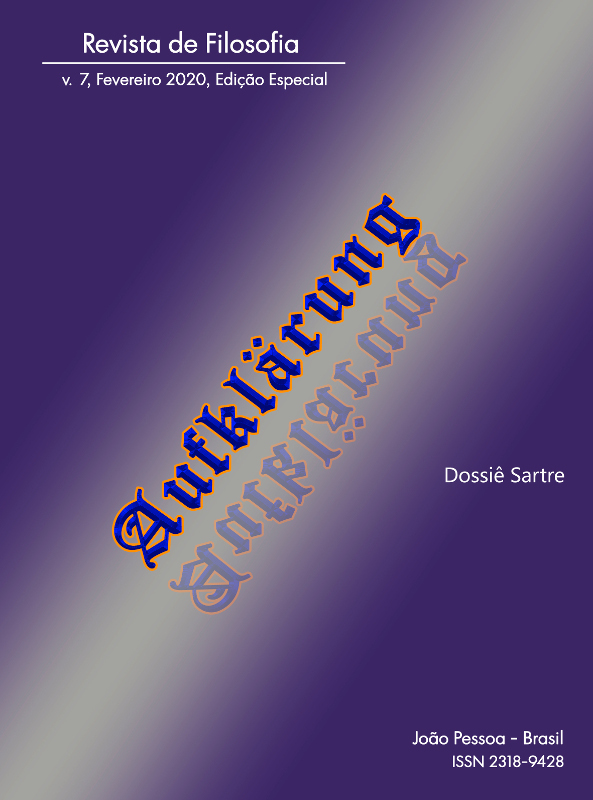A Fenomenologia de Heidegger e Sartre em suas diferenças
DOI:
https://doi.org/10.18012/arf.2019.50293Abstract
The aim of this paper is to describe Heidegger and Sartre's ontologies in their approximations and differences, taking some themes as analyzers, such as the meaning of phenomenon and phenomenology, the theory of knowledge and the question of science, the sense of being and the relation ontic-ontological. Heidegger and Sartre depart from common phenomenological assumptions, both of which are critical of the metaphysics of tradition and the imprisonment that Phenomenology itself has undergone. However, they establish such criticisms from different points of view, supporting singular conceptions about the analyzed themes. Thus stand out the radically distinct postures between the two phenomenologists: whereas for Heidegger concerns about concrete subject are considered metaphysical vices and reflect the concealment of the truth of being, for Sartre it is precisely the break with an abstract philosophy, detached from reality and the starting point of his dialectical ontological understanding. It is important to reflect on these approximations and differences, as the ontological and epistemological propositions of these two authors appear as the two main pillars of existential approaches in the field of psychology and psychopathology.
Downloads
Additional Files
Published
How to Cite
Issue
Section
License
Journal general policy
1.This journal works under a Creative Commons License aplied to online journals. That icence can be read in the following link: Creative Commons Attribution 4.0 International (CC BY 4.0).
2.Accordingly to this License, a)the journal declares that authors hold the copyright of their articles without restrictions, and they can archieve them as post-print elsewhere. b)the journal allow the author(s) to retain publishing rights without restrictions.
Metadata Policy for information describing items in the repository
1. Anyone may access the metadata free of charge at anytime.
2.The metadata may be re-used in any medium without prior permission, even commercial purposes provided the OAI Identifier or a link to the original metadata record are given, under the terms of a CC BY license refered for the Journal.







































